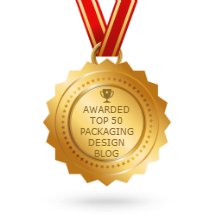
Corrugated packaging was invented when people needed to store goods safely and for long periods. Since 1894, when the first corrugated box was made, the material has been exceptional at its job. It was first approved as a shipping material in 1903, and the process of creating it hasn’t changed much since then. This reliable shipping material is the “weapon of choice” for most packaged goods.
While corrugated boxes have been critiqued by the environmental movement, they have many benefits in terms of packaging design. They hold environmental benefits as well. It’s:
- Strong, protecting goods from damage
- Less expensive than many packaging choices
- Lightweight, reducing transportation costs and emissions
- Versatile, allowing it to efficiently mold to the size and shape of a product
- Recyclable and easy to use
Strength and Protection
Since corrugated packaging is made out of multiple layers of material, with both flat elements and inner layers, it’s excellent at protecting goods during shipping. It can come in single, double, and triple layers, depending on how sturdy it needs to be. The air pockets within the corrugation gives it a superior strength-to-weight ratio.
Due to its strong structure and cushioning, it can prevent product losses due to damage, reducing customer service complaints, returns, and refunds. This is not only a benefit for your business, but it’s also an environmental benefit. Strong packaging means your products won’t be damaged easily, and you won’t need to replace products that arrive broken.

Lightweight and Cost-Effective
When you’re moving any product, packaging it in lightweight cardboard allows it to be transported easily. Taking cues from Mother Nature, those who created corrugated cardboard added flexible cushions of air to the packaging to make it thick and light. Just as birds’ bones have spaces for air inside them, so does corrugated packaging. This allows the packaging to be durable enough to survive long-distance travel, yet light enough to reduce the costs and environmental impacts of transportation.
If you’re looking for long-term, long-distance packaging, corrugated packaging is lightweight when compared to things like wood and metal. While all these materials are durable, only one is light.

Source: Coherent Market Insights
Versatility and Customizability
Consumer demand and product needs should shape your packaging design. Corrugated packaging is versatile, and it was originally used inside hats and to carefully package delicate glassware. It’s available in a wide range of sizes and shapes, allowing it to mold to the needs of products and customers. It can be designed to specifically adapt to your product’s shape and size. This saves on materials, transportation emissions, and shipping costs. The more flexible and efficient a company can be with its materials, the better this is for the environment.
Corrugated packaging also adapts to a wide variety of market uses. It’s not just used to send products directly to a consumer. In 2021, the largest market for packaging was in the transportation and logistics sector, primarily for B2B transactions.
If you’d like to use packaging to add to your brand identity, corrugated packaging is a sound choice. It can be printed easily with high-quality graphics to add to your branding.

Source: American Forest and Paper Association
Environmental Sustainability
Is corrugated packaging sustainable or awful for the environment? This packaging doesn’t deserve its bad reputation. Its light weight reduces transportation emissions, and its durability prevents product damage and replacement needs.
If you and your customers are concerned about the environmental impacts of creating this product, choosing recycled cardboard will mitigate the impacts. Corrugated packaging can be made from wood chips, timber products, or recycled materials. Even the wood chips that are often used in corrugated packaging are typically waste materials from the timber industry.
Compared to the complicated mixed materials used in many packages, corrugated cardboard is also one of the easiest products to recycle. It’s recycled regularly in countries around the world. While the rate of recycling has varied slightly over the years, the average recycling rate for cardboard packaging is above 90 percent. This helps conserve resources, reduce waste, and minimize atmospheric issues associated with packaging.

Easy Handling and Assembly
Packaging your products should be simple. If you have to purchase special tools for the job and train people to use the tools, that adds additional time and costs to your product transportation. With CPG packaging or corrugated packaging, you don’t need special tools. Boxes are easy to handle, assemble, and seal. The packaging is flexible, and if it’s being used to ship unusually-shaped items, it can be shaped and taped without additional equipment.
While corrugated packaging is the subject of a bad environmental reputation, its lightweight and versatile nature makes it an efficient packaging material. This reduces transportation emissions, making it a logical environmental choice. Around the world, corrugated packaging is recycled consistently and at a high rate, and it’s possible to incorporate recycled cardboard into your packaging design.
Finally, corrugated cardboard’s inner layer of air adds to its durability, making it tougher than other, thinner packaging. This leads to less breakage of shipped materials, lower return rates, and fewer environmental impacts due to damaged goods.
While corrugated cardboard isn’t perfect, there are many reasons why it’s been a popular packaging material for more than 125 years. You can save money, prevent product damage, and reduce environmental impacts by choosing corrugated cardboard. As you explore packaging design options, consider how this flexible, adaptable material can play a role in your design.
PKG Brand Design is always at the forefront of new CPG branding and packaging initiatives. Subscribe to our blog for the latest package design industry news!







